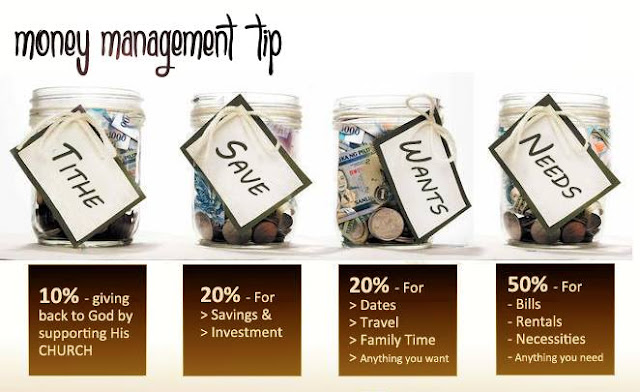Financial Freedom is an overly used term, especially in the internet or social media posts. Truth is, most scammers used this term to lure innocent investors. But what exactly does it mean? Do you have to seriously take measures to achieve it?
Achieving the so called 'Financial Freedom' is no easy task as it involves not just one or two steps but a series of steps that must be done 'one slice at a time'. Below are some measures you can commit to doing so you'll get closer to achieving 'Financial Freedom'.
1. It is a long-term commitment - You need clear goals to keep you on track in order to be successful. On a piece of paper or computer document, make a list of each goal that you want to reach in order to be successful. Some examples are to pay off your credit cards, save money for a down payment for a house, or retire at a certain age.
2. Make a Budget - A budget is your playbook for how to spend your money. You need it to keep your spending within reason and help you to ensure that you have enough money to cover your current needs as well as to save for your long-term goals.
3. Resolve to live debt-free - If you are currently in debt, plan your budget so that you can get out of debt more quickly by making extra payments. If you are not in debt, continue to live that way by putting off your purchases until you have saved enough to cover them.
4. Reduce your expenses - Cutting spending by even a small amount on a regular basis will make a big difference in the long run. Live frugally by learning to recognize the difference between want and need.
5. Increase your income - It is wise to have more than one source of income, both to increase your savings more quickly and as insurance in the event that you lose your job. There are a number of ways to supplement your income, from working a part-time job to developing streams of passive income (your VUL insurance policy passively earns income).
5. Invest your money - Your money will grow much faster if you invest it rather than leaving it in a savings account. The increase in value will enable you to reach your goal of financial independence much more quickly.
Achieving the so called 'Financial Freedom' is no easy task as it involves not just one or two steps but a series of steps that must be done 'one slice at a time'. Below are some measures you can commit to doing so you'll get closer to achieving 'Financial Freedom'.
1. It is a long-term commitment - You need clear goals to keep you on track in order to be successful. On a piece of paper or computer document, make a list of each goal that you want to reach in order to be successful. Some examples are to pay off your credit cards, save money for a down payment for a house, or retire at a certain age.
2. Make a Budget - A budget is your playbook for how to spend your money. You need it to keep your spending within reason and help you to ensure that you have enough money to cover your current needs as well as to save for your long-term goals.
3. Resolve to live debt-free - If you are currently in debt, plan your budget so that you can get out of debt more quickly by making extra payments. If you are not in debt, continue to live that way by putting off your purchases until you have saved enough to cover them.
4. Reduce your expenses - Cutting spending by even a small amount on a regular basis will make a big difference in the long run. Live frugally by learning to recognize the difference between want and need.
5. Increase your income - It is wise to have more than one source of income, both to increase your savings more quickly and as insurance in the event that you lose your job. There are a number of ways to supplement your income, from working a part-time job to developing streams of passive income (your VUL insurance policy passively earns income).
5. Invest your money - Your money will grow much faster if you invest it rather than leaving it in a savings account. The increase in value will enable you to reach your goal of financial independence much more quickly.






































